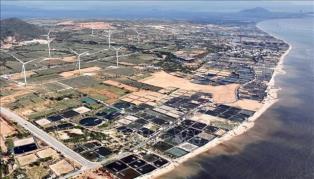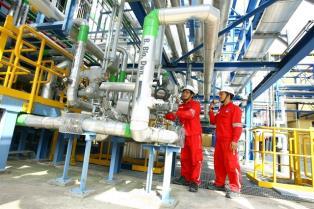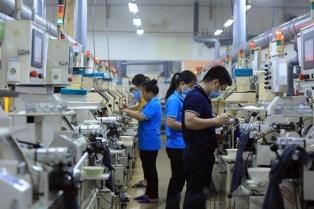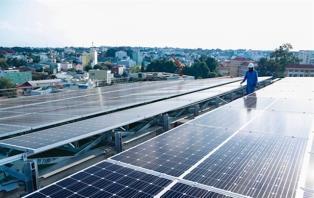Đồng Nai Province, long considered one of the country’s key agricultural provinces, is positioning itself as a centre for large-scale and modern livestock production, building on its abundant land resources and favourable natural conditions.
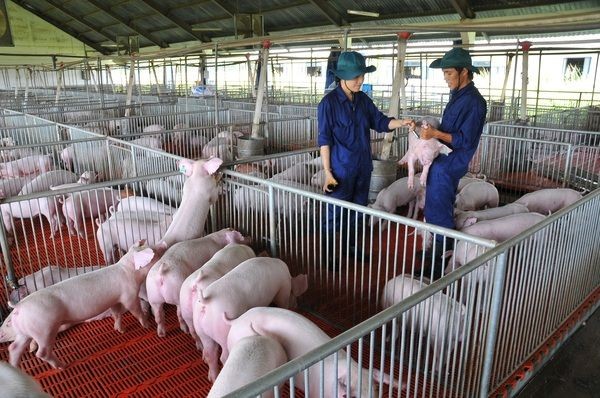
Đồng Nai Province, long considered one of the country’s major agricultural provinces, is positioning itself as a centre for large-scale and modern livestock husbandry, building on its abundant land resources and favourable natural conditions.
With more than one million hectares of agricultural land, relatively fertile soil, plentiful water resources and a large irrigation network, the province has a strong foundation to develop livestock farming on an industrial scale.
At present, Đồng Nai is home to around 2,000 livestock farms.
The province’s pig herd numbers nearly 4.2 million, with farm-based production accounting for 92 per cent of the total.
Poultry total approximately 36.5 million, including nearly 32.9 million chickens, with 84 per cent raised on farms.
The province also reports more than 3.6 million waterfowl and around 170,500 buffaloes and cattle.
According to Gabor Fluit, chairman of EuroCham and CEO of De Heus Asia, the western part of Đồng Nai, previously part of former Bình Phước Province, offers attractive investment opportunities for large-scale agriculture, aquaculture, food processing and production projects.
With the EU–Việt Nam Free Trade Agreement (EVFTA) cutting nearly 99 per cent of tariffs in the coming decade, the province is well placed to take advantage of wider access to the 500-million-strong consumer market of the EU.
Nguyễn Hữu Tỉnh, deputy director of the National Institute of Animal Husbandry and head of its Southern branch, said Đồng Nai lies within the dynamic Southern key economic region, benefiting from its proximity to HCM City.
He noted that the province saw strong transformation and growth in livestock farming in recent years, attracting major domestic and foreign investors such as CP Việt Nam, Japfa, Green Feed, De Heus, New Hope, Emivest Feedmill, Hùng Nhơn, Dabaco, CJ, Masan, Koyu Unitek, Phú Sơn, Dolico, and Bình Minh.
Among these, the partnership between De Heus and Hùng Nhơn produces around 1.6 million safe chickens annually for the market.
According to Hùng Nhơn chairman Vũ Mạnh Hùng, the partnership has maintained stable and growing production for more than a decade, not only in Đồng Nai but also in the Central Highlands and other provinces in the Southeast.
The group’s strategy to 2030 is to invest in modern, large-scale farms that meet advanced international standards, with De Heus supplying high-quality breeding stock.
Experts and scientists said that Đồng Nai should regard livestock as a central pillar of its agricultural sector, with pigs and chickens as major products.
They stressed the importance of farm-based, large-scale models applying advanced technology to increase value while protecting the environment.
Production should be linked to consumption, ensuring food safety, traceability and promoting organic and circular models.
Modern slaughtering, processing and deep processing are also expected to diversify products and raise value.
Đỗ Phú Trần Tình, director of the Institute for Policy Development under HCM City National University, said the province was focusing on modern farm economy models and satellite enterprises around large farms, combining technology and sustainability to raise productivity and meet international standards.
Deputy director Hữu Tỉnh also suggested that Đồng Nai should build breeding programmes for key species, aiming to form a regional breeding hub applying high technology.
This would develop in two directions: large-scale industrial farming and small-scale organic farming integrated into ecological agriculture.
In addition, the province plans to promote ecological agriculture around irrigation lakes and natural reservoirs, developing small-scale organic poultry models combined with automated technology, artificial intelligence and tourism activities, including vocational training.
At a recent working session with the provincial Department of Agriculture and Environment, Nguyễn Thị Hoàng, vice chairwoman of Đồng Nai People’s Committee [Administration] said that after its administrative merger with the former Bình Phước Province, Đồng Nai nowadays remained Việt Nam’s hub for pig and chicken farming.
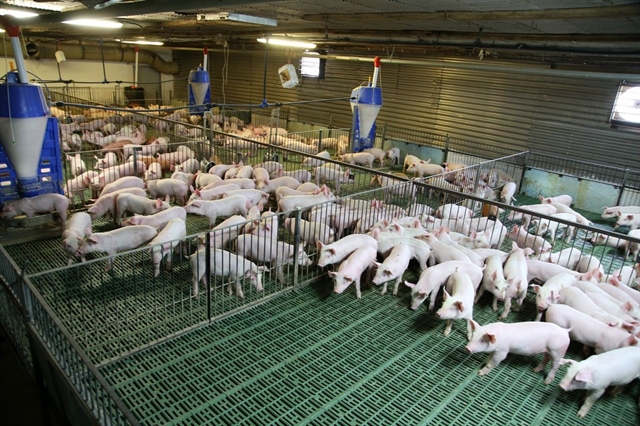
For 2026–30, the province aims to industrialise and modernise its livestock sector, ensuring large-scale production, disease resistance, food safety and organic farming, according to the official.
The target is to achieve annual growth in production value of 4–5 per cent, with the pig herd expanding to around 5 million and poultry flocks reaching about 48 million.
Closed value chains are being formed, linking breeding, processing and consumption towards exporting.
The province has 35 pig meat and processing chains, supplying about 550,000 tonnes of pork annually, representing 65.5 per cent of total provincial output.
It has also established 10 chicken meat chains, mainly run by large corporations, producing about 143,000 tonnes per year, or 50.4 per cent of the province’s total chicken output.
Six egg chains provide more than 360 million chicken eggs annually, while one quail egg chain supplies around 48 million eggs for both domestic consumption and export.
Đồng Nai is also stepping up trade promotion and brand building to expand markets at home and abroad.
The province is consolidating sustainable distribution channels through safe food markets, convenience stores and supermarkets, while targeting new consumer markets, particularly HCM City.
Export is a major goal, especially for processed chicken products destined for Japan.
To improve food safety, the province is reorganising slaughterhouses into approved centralised facilities, phasing out illegal or unregulated operations.
It is also encouraging deep processing to diversify and upgrade product value in line with market demand.
Producers are being supported to sell more through e-commerce platforms, reducing dependence on middlemen and preventing supply bottlenecks.
Digital platforms are being used to provide farmers with data on markets, disease forecasts and production capacity to guide more rational planning.
At the same time, the province is promoting advanced technologies, including automated feeding and watering systems, new breeds, biological products, vaccines, and processing innovations.
It is also applying test kits to detect antibiotic residues and banned substances in animal-derived foods.
With these strategies, Đồng Nai is determined to reinforce its role as Việt Nam’s livestock powerhouse, combining industrial-scale farming, high technology and sustainable practices to secure both domestic and export markets. VNS


